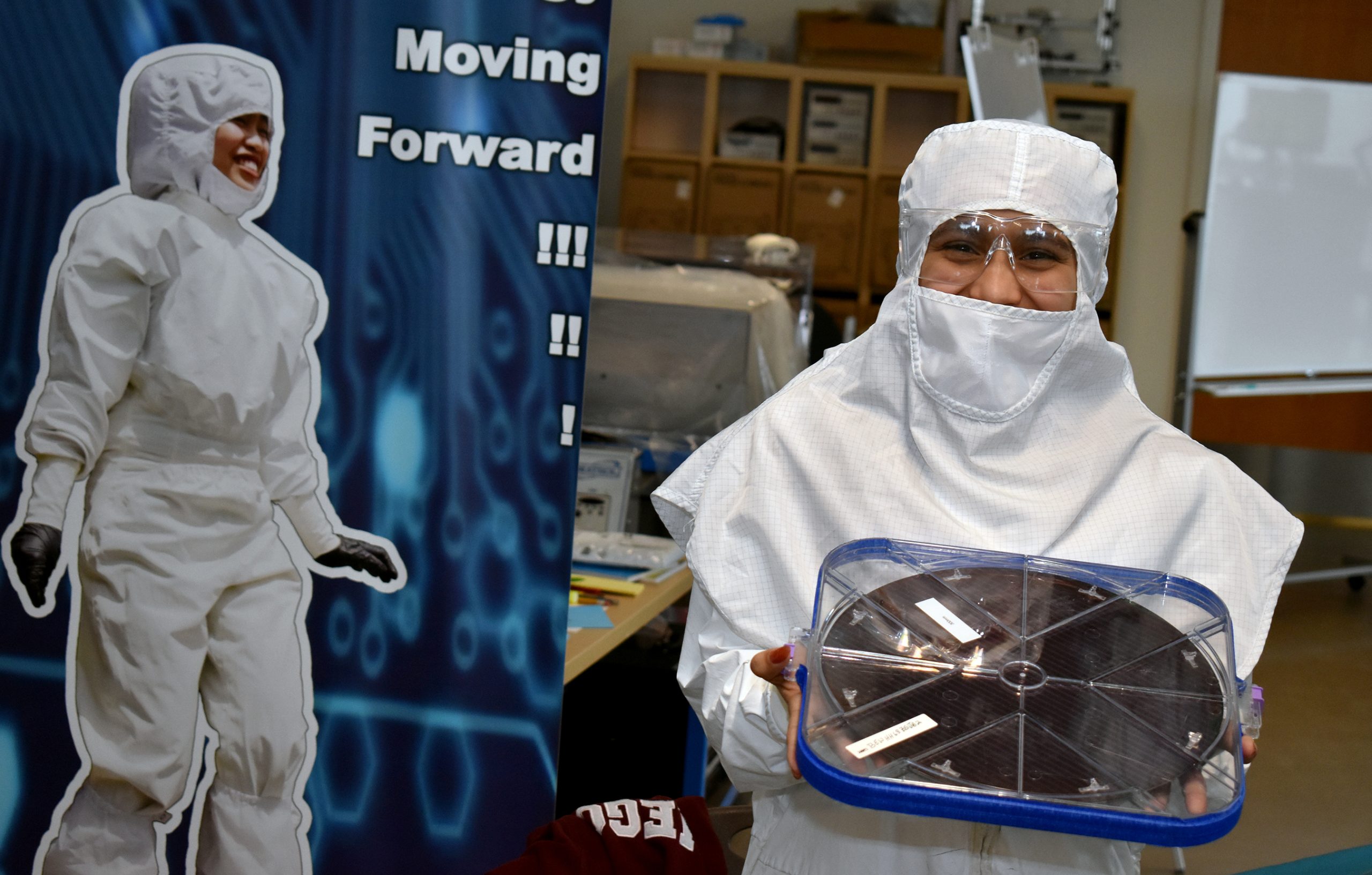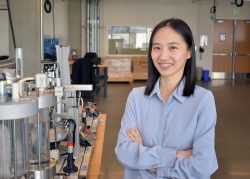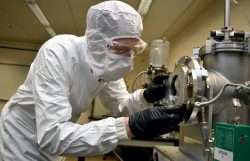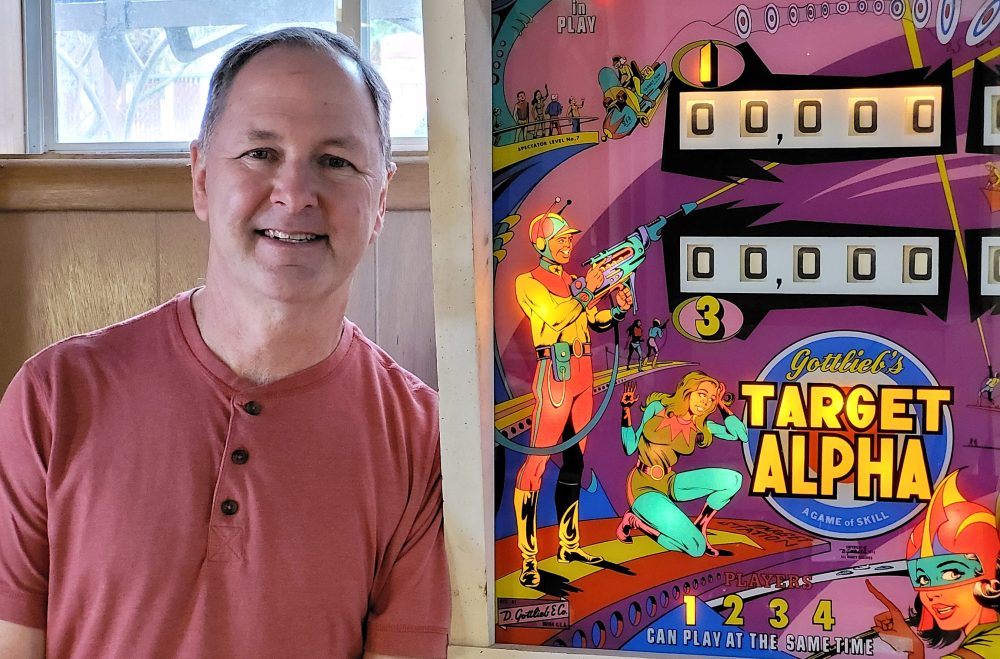Love of mechatronics energizes Eastern Oregon student’s pinball passion
Photos and story by Misty Bouse
The semiconductor industry needs needs qualified workers and Portland Community College is taking the lead in providing relevant training and support for students who are on a pathway to careers in the advanced manufacturing world.
This semiconductor pathway includes the Willow Creek Opportunity Center in Hillsboro where the mechatronics lab is the focal point for students in PCC’s Microelectronics Technology and Quick Start programs. The Microelectronics Technology and the Electronic Engineering Technology programs, located at the Rock Creek and Sylvania campuses respectively, offer options to learn the principles of advanced manufacturing and provide pathways to living wage jobs.
And students can come from anywhere in the region.
For example, one student taking advantage of the college’s semiconductor training is Eastern Oregon’s Brian Lord, who is enrolled in the EET Program. He has been working with electronics since he was eight years old, and is now focused on the program’s Mechatronics, Automation, and Robotics Engineering Technology Option.
This new, interdisciplinary field of study ranges from medicine to food processing to auto assembly to computer chips, and includes mechatronics, automation, and robotics. It is the combination of mechanical, electronic, and computer engineering – and is at the epicenter of quality control, reliability, consistency, and profitability driven by new technology, innovation, and global demand. But while mechatronics is one of the fastest-growing careers in the world, it is personal to Lord.

Semiconductor Training
PCC has built a healthy semiconductor pathway to address the worker shortage. From short-term introductory courses to the industry like Quick Start to two-year degrees in microelectronics and electronic engineering, PCC offers many options to learn the principles of advanced manufacturing that provide pathways to living wage jobs and long-term careers in semiconductors.
“I got my first Radio Shack kit, and I was hooked,” said Lord, who has worked in telecommunications for the past 38 years. “I started an EET degree back in 1982, but did not finish.”
While Lord has had many classes throughout his career, particularly in computer networking, system integration, and electronics, he still yearned for that degree he had started.
“I live in La Grande so I needed a program that I could do remotely, as I am four hours away from Portland,” he said. “I also work full-time so I needed some classes that I could do at night.”
With Lord’s telecommunications employer offering an educational assistance program where they pay the tuition and he pays for the fees and books, he could not pass up such a great opportunity to finish his degree. Lord plans to retire sometime in the next decade but intends to pursue another avenue using his skills and knowledge.
“I love old pinball machines and have a desire to create new technology to restore their functionality and playability,” said Lord, who has the same passion for the machines as 2020 EET grad Luke Christensen. “I am planning to make this my second career. I am excited for this next phase of my life. Who knows where it will take me?”
Lord is in an EET Program that has been active for more than 50 years, producing skilled graduates who have obtained impactful jobs or gone on to pursue advanced degrees.
“The teachers and staff have been outstanding,” he said of the EET program. “I can set up a zoom meeting to discuss any issues that I have while learning the curriculum. I have also traveled to Portland and had some in-person help as well. Every instructor has had a vested interest in my success. Other students have been supportive too. Many, like myself, also work full-time jobs so they share similar challenges. This has led to a great deal of collaboration amongst us in the program.”
He also says that the educational benefits have been great. As part of the EET training, students have access to the PCC STEAM Centers, where they learn 3D printing, laser cutting, sewing, and other skills.
“I have received a top-quality education,” Lord added. “Even if my employer wasn’t picking up the tuition, the cost of the program would be an exceptional value. If you are thinking about starting, or continuing your education I would recommend taking a look at PCC.”
Semiconductor News
 Quick Start To A Career
Quick Start To A Career
Emily Peng’s journey to Intel made possible by PCC’s semiconductor short-term training and support programs. Read More.
 Driving the Semiconductor Revolution
Driving the Semiconductor Revolution
Due to a major need for more workers, PCC is working hard to connect young students and under-served communities to semiconductor education. Learn More.

